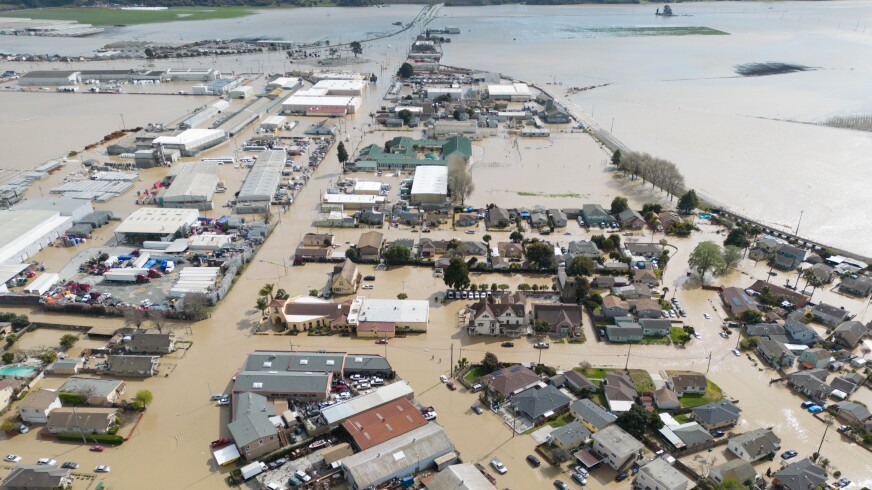Supporting direct assistance services to address unmet needs quickly

In the immediate aftermath of a rainfall- or flood-related hazard event, industry laborers who depend on weather conditions conducive to production can struggle to pay bills like rent or utilities, feed their families and recover their damaged property. Over months, the “snowball” effect of compounding unmet needs caused by loss of or reduced income can lead to household financial instability and displacement. These two factors delay a community’s ability to recover from a disaster.
Through grants from CDP’s Disaster Recovery Fund, two organizations, Corazón Healdsburg and United Way of Santa Cruz County (UWSCC), have provided direct assistance to farmworkers, hospitality industry laborers and other low-income households. The assistance empowered individuals and families to self-stabilize as they move toward recovery from the catastrophic rain and flooding caused by atmospheric rivers that engulfed parts of California in December 2022 and January 2023.
In Northern Sonoma County, one of California’s most prolific regional producers of wine grapes, extreme weather events like floods can leave vineyard farmworkers out of work for weeks or even months. Corazón Healdsburg focused outreach toward county residents who had been turned away from a government-sponsored relief program because of limited funds, awarding cash assistance to 50 households through checks and gift cards ranging from $100 to $1000. These were used for rent, utilities, food and other urgent unmet needs.
Corazón’s direct assistance program came with an offer of ongoing case management support. Clients and program staff developed individual plans for financially recovering from the flooding and financially preparing for future disaster events.
In Santa Cruz County, farm and hospitality workers endured prolonged displacement from work and loss of income when the late 2022 and early 2023 flooding resulted in mudslides and extreme damage to the beachfront. Additionally, trees fell on homes, and uninsured households faced an immediate need for food loss replacement, temporary lodging placements and lodging payment assistance.
Through a CDP grant, UWSCC provided temporary hotel accommodations to 200 households and one-time financial assistance payments to support food loss replacement, transportation and other urgent needs. Because UWSCC secured lodging arrangements within the county, affected residents could remain near their homes and in close contact with the disaster management professionals working in their communities, a critical component of preventing a protracted disaster recovery journey.
“The Santa Cruz Mountains and our beaches were devastated with mudslides and road erosion. [CDP] funding made it possible for 200 families to evacuate their homes and seek hotels for three nights via 211 Santa Cruz County. In addition, [CDP] funding supported 1,000 residents receiving one-time financial assistance to support transportation, food, etc. The Pajaro Valley River breach displaced 1,200 residents, predominately farmworking families – again, [CDP] funding supported one-time financial assistance to evacuees. The photo shows the small community with flood levels to the front doors and higher in some areas.” – Keisha Browder, CEO, United Way of Santa Cruz County
In all, the direct assistance grants supported by CDP funding helped prevent the compounding effects of unmet needs for 1,250 Californian families affected by catastrophic rainfall and flooding, fortifying them to recover their incomes, livelihoods and long-term stability with fewer setbacks behind them.